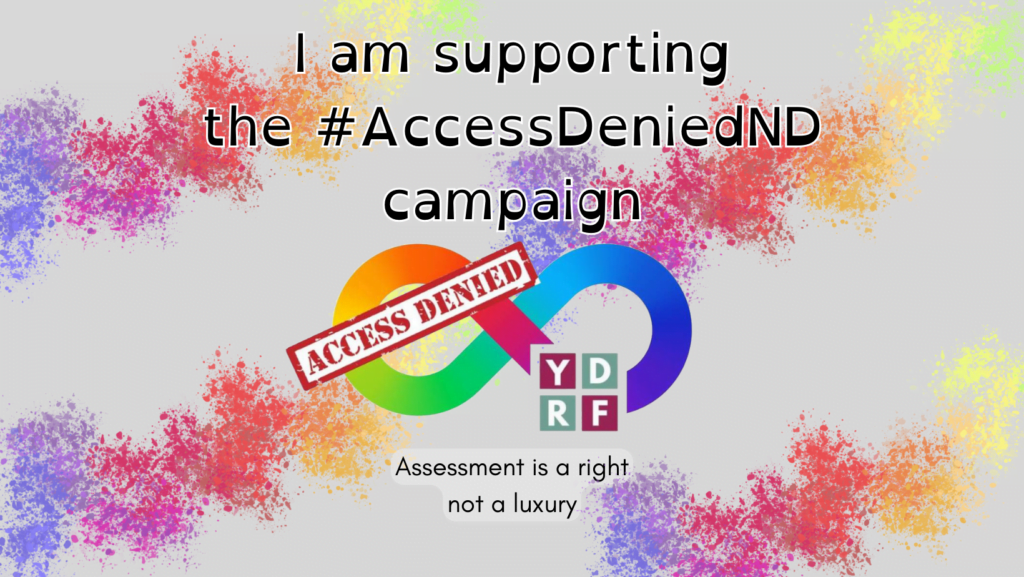Navigating ADHD in the workplace for happier, healthier teams

Essex Business Partnership Health and Wellbeing Conference
14th February 2024
On 14th February 2024, I was invited to speak at the Health and Wellbeing Conference in Chelmsford hosted by Essex Business Partners at Chelmsford Country Cricket Grounds regarding how to successfully navigate ADHD in the workplace.
I am sure you have noticed that ADHD has recently garnered increased attention in the media, with more individuals identifying and being diagnosed with it. However, this surge in awareness doesn’t necessarily imply a surge in incidence. ADHD has long been recognized by medical professionals and current thinking is that ADHD has been historically underdiagnosed, particularly among assigned female at birth individuals and people of colour. Thankfully, times are changing, and more people are becoming aware of ADHD, which is a positive step forward.

What is ADHD?
ADHD is a neurodevelopmental condition characterized by differences in brain structure and neurotransmission; the way in which messages are communicated around the brain and how different areas of the brain are activated. ADHD is primarily attributed to low dopamine levels in the brain. The behaviours associated with ADHD, such as difficulty concentrating, impulsivity, and emotional intensity, stem from this neurobiological basis. It’s worth noting that ADHD is strongly hereditary. If a child has ADHD, it’s very likely that one, or both, parents have ADHD too.
The main characteristics that people notice in those with ADHD are things like:
- Difficulties with concentration
- Issues with short term and working memory
- Difficulties with planning and getting started (activation)
- Difficulty with organisation
- Losing things
- Easily distracted by small things which others wouldn’t notice
- Impulsivity- Acting or speaking on the spur of the moment without thinking through the consequences. Really noticeable in adolescents, ADHD teens take more risks are more likely to indulge in more risky behaviour that other adolescents and that’s saying something because teens are not known for their good judgement.
- People with ADHD can experience emotions much more intensely than others do
- Adults with ADHD are usually much less hyperactive than children with ADHD, so hyperactivity usually manifests in adults as restlessness and the need to tap or fidget. This can also manifest as talkativeness, particularly in those AFAB
- Hyperactivity can also be internal – a racing mind that is never quiet, never still
- Some people are diagnosed without the hyperactivity aspect: this is referred to as inattentive ADHD
- There are loosely three types of ADHD – Combined, inattentive and hyperactive.
ADHD often occurs alongside a number of other associated conditions or symptoms:
- These include sensory difficulties (being over- or under – sensitive to sights, sounds and other sensations) I have misophonia – I can’t bear to hear other people eating. I also can’t bear labels in my clothes and I can’t wear linen or wool or anything that is really tight. I don’t like bright lights or very loud environments but I also don’t like areas that are too dim. That’s why working from home is best for me because I can control the light and the temperature.
- dyslexia,
- dyspraxia (coordination difficulties),
- Tic disorders
- autistic spectrum disorder. Lots of ADHDers have autism as well.
- Some (but by no means all) people with ADHD also develop mental health difficulties such as anxiety and depression.
- Sleep issues – chronic insomnia often affects those with ADHD including children
Understanding ADHD in the workplace is crucial for fostering an inclusive environment. While not everyone with ADHD requires extensive support, simple adjustments—termed “reasonable adjustments”—can greatly enhance their effectiveness at work. Moreover, many of these accommodations benefit everyone, making them valuable investments for any organization.

People with ADHD often talk about lack of support from their employer as a reason why they may end up leaving a job. That’s unfortunate, because with the right support and changes that focus on capitalising on their strengths and talents, people with ADHD are likely to be a great asset to your organisation
Individuals with ADHD possess remarkable strengths, such as:
- Ability to ‘hyperfocus’ on things they are interested in – this is a double edged sword and it does mean that ADHD employees are more at risk for burnout.
- Willingness to take risks – so you’ll often find ADHDers in professions such as emergency services, rescue services and as entrepreneurs.
- Spontaneous and flexible
- Good in a crisis – people with ADHD are often drawn to work in the emergency services.
- Creative ideas – thinking outside the box
- Relentless energy
- Often optimistic • Often an extraordinary eye for detail – many of my colleagues have mentioned that I think of and see things that others don’t notice.
Why should we talk about the impact of ADHD in the workplace?
ADHD affects each person differently and is often influenced by situational factors. In some environments or situations, a person’s ADHD symptoms could become very noticeable OR they could be very mild – that’s why it’s important to make sure that the environment around an ADHD employee is working for them and not against them.
Many individuals with ADHD are hesitant to disclose their condition due to fear of stigma or repercussions such as lack or promotion or progression or even a fear of losing their job. If someone has disclosed their ADHD to you, it would have taken courage and trust on their part and it’s important to acknowledge that.
This fear of disclosure can mean that employees do not disclose and therefore do not receive the support that they need in order to really excel in their roles.
Employers can potentially mitigate the fear of disclosure by educating themselves about the condition, demonstrating flexibility, and engaging in open communication with their employees. Providing training around ADHD and awareness of what ADHD is as well as how to manage team members with ADHD could be invaluable for managers within your organisation. It would equip them with the skills and knowledge to understand and support their teams effectively even if someone has not disclosed their diagnosis.
Supporting employees with ADHD involves a multifaceted approach including changes to the environment, working practices and managerial strategies.
Supporting employees with ADHD involves a multifaceted approach including changes to the environment, working practices and managerial strategies.
Reasonable adjustments are usually low cost strategies that can easily be implemented and that make a noticeable difference in productivity. There is an argument that many reasonable adjustments implemented for those with ADHD would benefit everyone in the company and it is worth considering whether to make these options available for anyone to request. Doing so would also mitigate the need for people to disclose their ADHD.
Many people with ADHD require minor changes in their working environments or practices in order to fully succeed in their roles so this is an important topic to discuss within your workplace.


Allowing people the flexibility to work during their most productive times could be one of the easiest and most impactful reasonable adjustments that can be made in the workplace.
My best times of day are early morning and late night. For years I had a working pattern of 5 hours in the morning and 2 hours at night. It worked for me and my family but it also worked for my company and my team because any work that needed to be completed outside of core hours was done by me.
At the time I was working as an IT professional for a global law firm who had a number of offices in the Far East. There was a need for working outside of core London operating hours.
Other reasonable adjustments to consider could be:
- Remote work options
- Allowing delegation of non core aspects of a task to another team member to aid in completion of the entire task
- body doubling
Modifications to the work environment:
- Visual prompts – e.g. wall charts for routines, checklists, post-it notes for reminders
- Physical reminders – e.g. laying out everything needed for tomorrow at the end of today, labelled ‘homes’ for storing tools or equipment
- Larger computer screens so everything is visible (reduces burden on memory)
- Visible clocks, allowing / encouraging use of alarms and timers – eg pomodoro timers.
- Reducing distractions: – Allow noise cancelling headphones with music or ambient noise, or ear plugs – Own space if possible, with reduced level of distraction
Potentially helpful apps include:
- To do list reminders / scheduling apps (e.g. Todoist, Wunderlist, EverNote)
- Aids if reading and writing are a problem – Text to speech software (e.g. Captivoice.com) – Speech to text software (e.g. Google Docs Voice Typing, Apple Dictation) Dragon Naturally Speaking, Word has a built in voice to text function
- Screen readers
- Blockers to eliminate distractions from social media / smart phones during tasks (e.g. Cold Turkey, Forest) My children and I use Forest.
- White noise / ambient noise apps (e.g. Coffivity, Focusatwill)
- Note taking apps (can be as simple as notes function on phone. OneNote, EverNote)
People with ADHD can benefit from regular sessions with an ADHD coach who can help them to develop their organisation and time management skills and strategies. So providing access to ADHD coaching is another valuable strategy that could be implemented to aid people in navigating the challenges of ADHD in the workplace,
Access to Work funding can sometimes be used to fund ADHD coaching.
Access to work can also be used to fund some of the reasonable adjustments that an employee might need to help them be more effective in managing their ADHD in the workplace. Some of my clients have been provided with Access to work funding for a Virtual Assistant to help them with their organisational tasks.

Ultimately, fostering a culture of understanding and support benefits both employees and organizations. Regular communication and periodic check-ins can ensure that accommodations are effective and that employees feel valued and understood.
Everyone with ADHD is different and it’s important to talk to your employees and tailor the support that you offer to that employee’s situation and the requirements of their job.

Navigating ADHD in the workplace for happier, healthier teams Read More »






